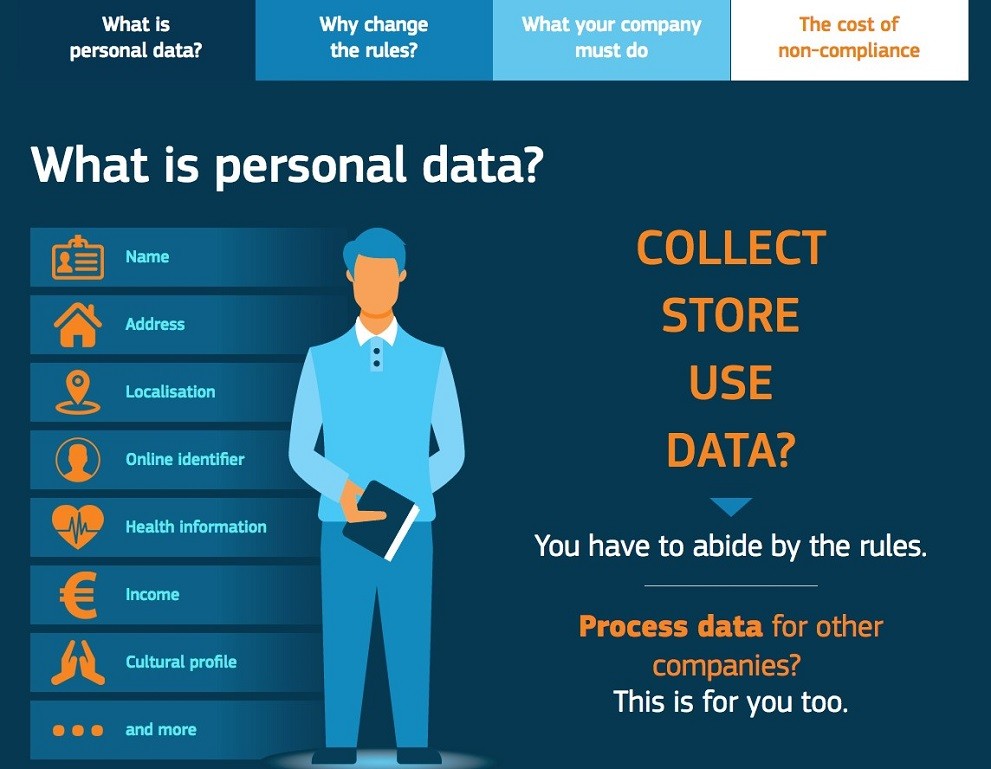
As part of his regular blog counting down to the introduction of the General Data Protection Review (GDPR), Chris Hunter HM Network, urges businesses to ignore the myths and focus on the facts.
Fake news is when false information is purposely distributed to influence others, leading to real information becoming misinterpreted or misunderstood. At HM Network we are finding this with GDPR. The facts are getting muddled, watered down, and embellished, resulting in the importance of the original message being lost.
It will be adopted into UK Law under the new Data Protection Bill - replacing the current UK 1998 Data Protection Act.
FACT: Last week The UK Government Department for Digital, Culture, Media and Sport (DCMS) announced that it will be implementing the new Data Protection Bill. The Bill will bring the European Union’s General Data Protection Regulation (GDPR) into UK law.
FICTION: We heard a comment the other day that the GDPR is coming simply to create an industry. This is simply not true. The GDPR is actually long overdue and has the interests of all of us – consumers, citizens, subjects – at its heart.
The reality is that over the past 20 years, our dependency on all things digital has ballooned. A large part of our lives are spent online and personal data from our laptops and smart devices has been allowed to be used in ways we did not necessarily intend when the rules were created in 1995. Minimal rules on gathering or reusing our personal data have created markets for databases - about us.
GDPR is actually a wake up call. A lot of what it covers is common sense - things that organisations should already do, not something that has come from nowhere and for no reason. The ICO issued an article last week to bust a few myths, pointing out that they will not be issuing the new maximum fines for minor infringements. They do however “intend to use those powers proportionately and judiciously”.
They said that although the ICO has greater powers and can impose greater financial penalties for getting things wrong, but that these fines are actually a last resort and they prefer not to impose fines where possible. In 2016/17 out of 17,300 cases concluded, only 16 resulted in fines – that’s less than a tenth of 1%. Typically the order of action is as follows:
Warning > Reprimand > Suspension of processing > Monetary Fine
Easy one this - it's the reputational impact that we should focus on, not simply the bigger possible fines. Even without a financial penalty, having your organisation’s hard won name tarnished could be damaging, leading to lost revenue, relationships and customers.
Protecting personal data of any kind should be adopted as standard part of your business culture, not seen as an inconvenience. We have come across a really useful interactive GDPR info-graphic that helps demonstrate this and a snapshot of this is below.  For news of upcoming #GDPRexpress sessions and our “Social” events please see our eventbrite page https://www.eventbrite.co.uk/o/hm-network-ltd-13628993778
For news of upcoming #GDPRexpress sessions and our “Social” events please see our eventbrite page https://www.eventbrite.co.uk/o/hm-network-ltd-13628993778
If would like a further information any of the areas discussed in the blog posts, want us to put you in touch with specialists who can provide training or simply want to chat about connectivity you can email us at info+gdpr@hm-network.com or call 03333 444 190.




The website uses cookies.
Some are used for statistical purposes and others are set up by third party services. By clicking 'Accept all & close', you accept the use of cookies. For more information on how we use and manage cookies, please read our Cookie Policy.